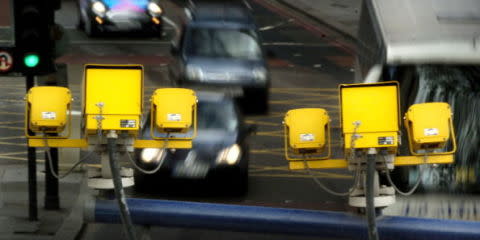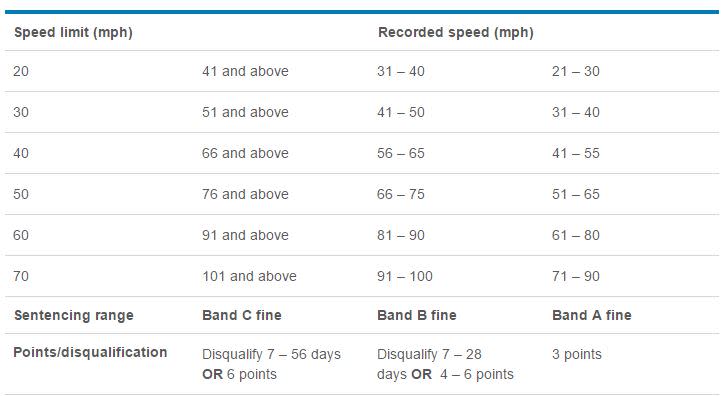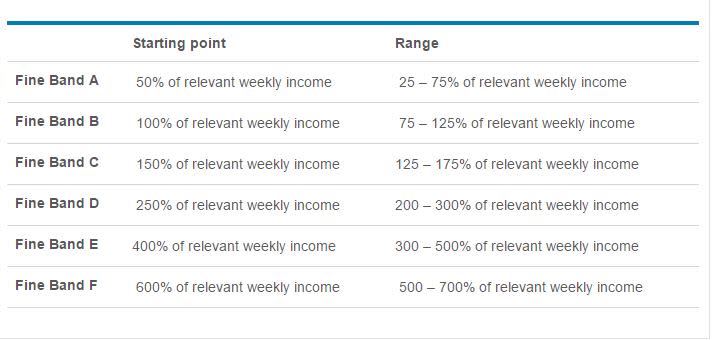Everything you need to know about speeding fine changes

As of April 24, tougher penalties have come into place for speeding on UK roads. But don't worry, we at Digital Spy are here to walk you through them.
Let's begin with the 'why'. In 2015, 244 people were killed in UK road incidents where the driver was exceeding the speed limit. According to research by roadside assistance service Green Flag, speeding offences have also increased by 44% over the past 5 years in some parts of the country. New, tougher fines will hopefully reduce those numbers by deterring drivers from speeding.
AA President Edmund King told BBC News that "responsible drivers will welcome the changes coming into force".
He added: "The majority of drivers who keep to the correct speed, as well as driving to the conditions, won't be affected. It is only those who deliberately drive dangerously who will end up in court."
Who does it affect, then?
The changes to fines implemented by the Sentencing Council are designed to more heavily punish serious offenders.
The new system is banded, so the size of the fine, and amount of points added to the drivers license, increases with speed relative to the limit.
Technically there are six bands, A-F, but the ones which apply to most cases are A-C. Band A categorises the least serious offences, and Band C the most serious.
Band A: Fine, plus 3 points
Band B: Fine, plus either disqualification for 7 - 28 days OR 4 - 6 points
Band C: Fine, plus either disqualification for 7 - 56 days OR 6 points
If you're going going between 61-80mph in a 60mph zone, then a band A fine and penalty is advised. However, if you're caught travelling at 91+mph in the same zone, then a band C fine and penalty will be delivered.
So what matters is the driver's relative distance from the speed limit, not the size of the speed limit itself.
Courts can also consider disqualification for longer than 56 days "where an offender is driving grossly in excess of the speed limit".

How much have the fines increased?
Where the difference between the speed limit and actual speed is lower, the fines remain mostly the same. The lowest fine / point combination is 50% of weekly income and 3 points added to a license.
But where the difference between the speed limit and actual speed is higher, the costs have increased dramatically.
Fines for drivers caught at 101+mph on motorways now start at 150% of relevant weekly income, rather than 100% under the old rules.
That's just where the fine starts. Depending on the case, the fine may increase, or decrease, by 25%. That means drivers at the top band could end up paying out 175% of their weekly income.

The court decides whether the fine should go up, or down, or remain the same, based on "aggravating or mitigating factors". Aggravating factors include carrying passengers or heavy load, and driving near a school.
Can I get fines reduced?
Possibly. The Sentencing Council lists three factors which can potentially reduce the seriousness of an offence. If the driver has no previous convictions, displays good character, or can prove a genuine emergency was taking place, then the sentence could be lowered.
Let's be clear though, none of these factors are a free pass. Even if an emergency was taking place, you still might end up with a hefty fine. It's up to the discretion of the court.
Another way to reduce sentencing is to suck it up and enter a guilty plea. The Sentencing Council advises that the court "should take account of any potential reduction for a guilty plea".
You can read up on the changes yourself on the Sentencing Council's website.
Want up-to-the-minute entertainment news and features? Just hit 'Like' on our Digital Spy Facebook page and 'Follow' on our @digitalspy Twitter account and you're all set.
You Might Also Like

 Yahoo News
Yahoo News 